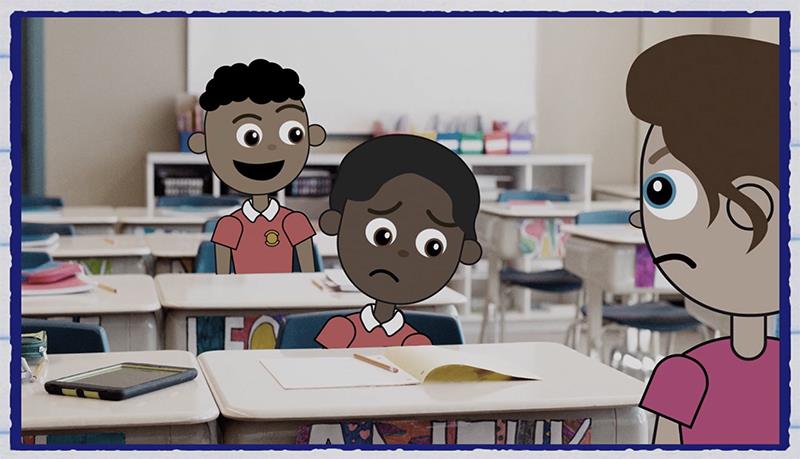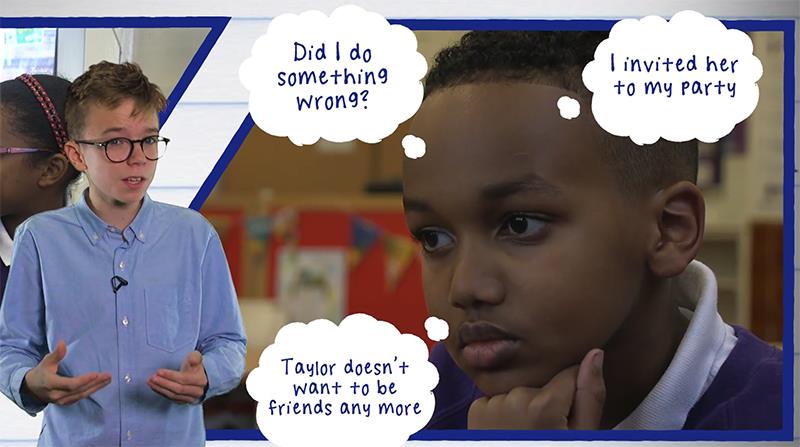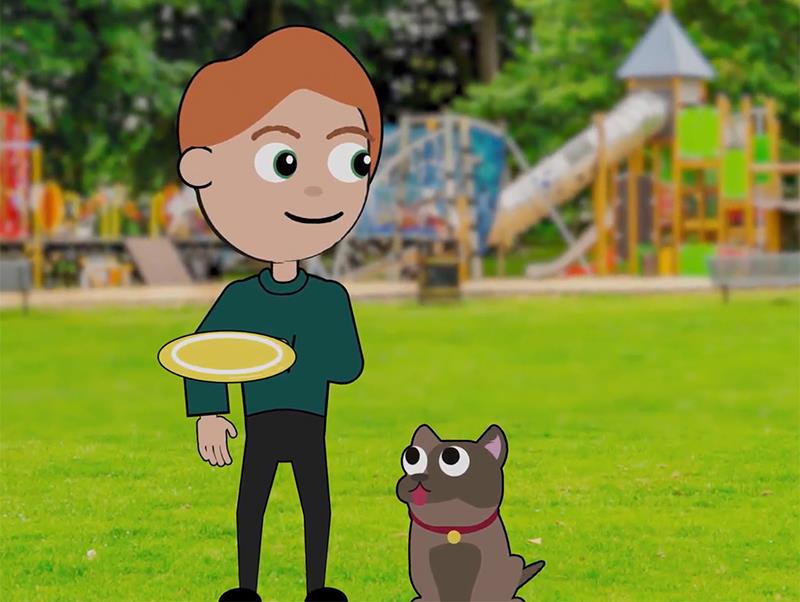
We are living through unprecedented times. Come September many primary school pupils will have missed up to six months of school due to the Covid-19 pandemic.
The impact of this on their mental health and personal and social wellbeing is still to be fully understood – but is certainly a cause for concern.
However, help is at hand for teachers as they seek to support their pupils to cope with the impact of the Covid-19 lockdown.
Discovery Education has produced a series of resources for primary schools that meet the requirements of the new relationships and health education curriculum (DfE, 2019), which becomes mandatory in primary schools from September*.
Discovery Education’s new Health and Relationships resources offer teachers a toolkit – with lesson plans, activity ideas and materials, and videos – to tackle key areas of the new curriculum. The resources are split into six core topics, within which teachers can find age-appropriate materials covering years 1 to 6.
Three of the six topics are particularly pertinent post-lockdown – Healthy and happy friendships, Healthy bodies, healthy minds, and Coping with change (the other three are Similarities and differences, Caring and responsibility, and Families and committed relationships).
Its launch, and the implementation of the Department for Education’s new curriculum, could not be more timely, according to Kristina Mjomark, head of content at Discovery Education.
“In September, when everyone goes back to school, teachers will be looking at how to support children with their mental health following the lockdown. These resources are a framework to explore many of these feelings, for example how children are coping and the state of their friendships after a period of isolation. For some, these relationships will have changed.
“Children will have had very different experiences of lockdown and these activities will help them to explore their emotions and cope with these changes, helping them to build resilience.”
The resources can help teachers to negotiate some of the challenges children may be facing, such as sleep dysregulation, loneliness, friendships and resocialisation, talking about emotions, and mental health and wellbeing.
Further relevant themes might include transition to secondary school, dealing with physical and emotional changes as they grow, developing resilience and self-worth, and finding the language to discuss their concerns.
Concern among teachers about how to approach relationships and health education
Discovery Education’s journey to developing the resources began 18 months ago, when details of the new curriculum first emerged. They engaged with organisations like the PSHE Association as well as teachers on the ground to “really find out what teachers thought about teaching this and what resources would be useful and age-appropriate”.
Ms Mjomark continued: “We found there was a lot of concern among professionals about how to approach this curriculum. Some teachers weren’t sure how to teach this effectively, some schools already had programmes but were unsure how to adapt them to the new guidance, and others needed to find appropriate resources.
“They also needed to manage relationships with parents, who would feel strongly about these lessons and would want to ensure that the messaging was consistent at home.
“Parents might also feel they are losing control over what their children are being taught, so we needed to be respectful of children’s backgrounds and family beliefs, and to make sure that the materials were inclusive and that all children were represented.”
Discovery Education set up a team of authors who had experience of working in schools and expertise in relationships and sex education.
“With most subjects, you learn one aspect and then move on to the next phase,” Ms Mjomark said. “But this curriculum states what children need to know and understand by the ‘end of primary school’, so the challenge was to develop these skills in an age-appropriate way throughout the year groups.
“We wanted to give pupils the skills, knowledge and resilience they needed to negotiate the challenges that growing up would bring – so that they were equipped to handle different situations and experiences in their lives as they move to secondary school and beyond.”
Social, cultural and religious influences at home
Among the challenges of putting together an age-appropriate toolkit was that children mature differently and have grown up with different home experiences dependent on social, cultural and religious influences.
Ms Mjomark continued: “Teachers can adapt the lesson plans, and use the videos to explore a range of issues and context – and even if pupils aren’t yet at that stage and don’t have experience of a particular situation, they will know someone who has, so will be able to relate to it.
“We worked hard with the producers to create animations, videos and scripts with a diverse range of scenarios that helped children to understand themselves through the experiences and viewpoints of others. The videos are the vehicle through which children can explore their own feelings and emotions.”
The main protagonists of the videos, Archie and Elise, conduct interviews and conversations with experts as well as other children and young people about issues such as peer mediation, social media and selfies, and periods. Other stories are presented as animations featuring a young boy, Tariq, who worries about things like moving to a new school.
For example, one video, Elise explains periods, features a group of teenagers discussing their first period. It is aimed at reassuring younger girls about what this means and involves. The video also features Archie, who is curious about what girls go through during menstruation.
Uppermost in the minds of the creators of the resources was that children should feel safe and healthy: “We want children to feel proud of who they are, be respectful towards one another, and to feel confident about handling the different situations they encounter as they grow up,” Ms Mjomark added.
Below, we list some of the Discovery Education Health and Relationships resources that will be relevant to supporting pupils post-lockdown.
These lessons and resources focus on how to stay healthy, both physically and mentally. Materials encourage the development of positive self-worth and recognition and look at what might affect or influence unhealthy ways of thinking and how to overcome this. Specific resources relating to potential post-lockdown issues include:
- Valuing our bodies and minds: Includes strategies for restoring calm to busy young lives dominated by the pressures of school and friendships. Themes include negative self-talk and keeping well. Videos tackle issues such as finding your calm and dealing with feelings like anxiety, nerves and self-doubt.
- Being the best me: Includes videos and lessons plans linking to themes of mental health as well as activities such as self-respect statements, fear of missing out and others. Videos tackle issues such as social media and selfies, examining the pitfalls of comparing yourself to others.
- Sleep, food and hygiene: Includes tips for good sleep, why sleep is important, and activities around germs and hygiene.


Healthy minds: Among the resources is an animation focusing on themes of anxiety, nerves and self-doubt (top) and a video looking at selfies and social media featuring Archie and Elise, our guides for many of the topics in the series (above)
This topic explores friendships, their importance, what being a good friend means, and how to keep friendships positive and healthy. It includes skills to resolve difficulties within friendships, including maintaining and respecting personal boundaries and managing peer pressure. Specific resources relating to potential post-lockdown issues include:
- Being a good friend: Videos and lesson plans/activities.
- Solving friendship difficulties: Includes a focus on how peer mediators (or mentors) help children to deal with bullying and loneliness through talking and kindness.

Talking friendship: Archie is back once again to guide pupils through videos on being a good friend and resolving common friendship difficulties
This topic explores how people grow and change – and how to develop resilience to change. It includes physical issues such as puberty as well as transition to secondary school and managing the emotional effects of life changes. Specific resources relating to potential post-lockdown issues include:
- Coping with feelings when things change: Including themes of bereavement, sadness and empathy.
- When Bailey’s dog died: Focused on coping with bereavement and loss, including a video and lesson plan.
- Coping with emotional effects of life changes: Focusing on puberty but including videos and lessons that could be relevant to back-to-school issues.
- Moving to a new school and feeling lonely: Making friends and getting along, including starting a new school.
- Transition/coping strategies: A video looking at the changes pupils can expect at secondary school.

Bereavement: Among the Coping with change resources is a topic on coping with bereavement and loss, featuring the story of Bailey and his dog
For full details of the Discovery Education Health and Relationships materials, visit www.discoveryeducation.co.uk/what-we-offer/discovery-education-health-and-relationships
- Dorothy Lepkowska is a freelance education journalist.
Further information & resources
* Due to the pandemic, primary schools have been given until the summer term 2021 to begin teaching statutory relationships and health education after it becomes compulsory from September 2020. The Department for Education’s statutory guidance for relationships and health education (primary) and relationships, sex and health education (secondary) is available via http://bit.ly/2kQwtg
Headteacher Update Knowledge Bank
This article has been published by Headteacher Update with sponsorship from Discovery Education. It has been written and produced to a brief agreed in advance with Discovery Education.
